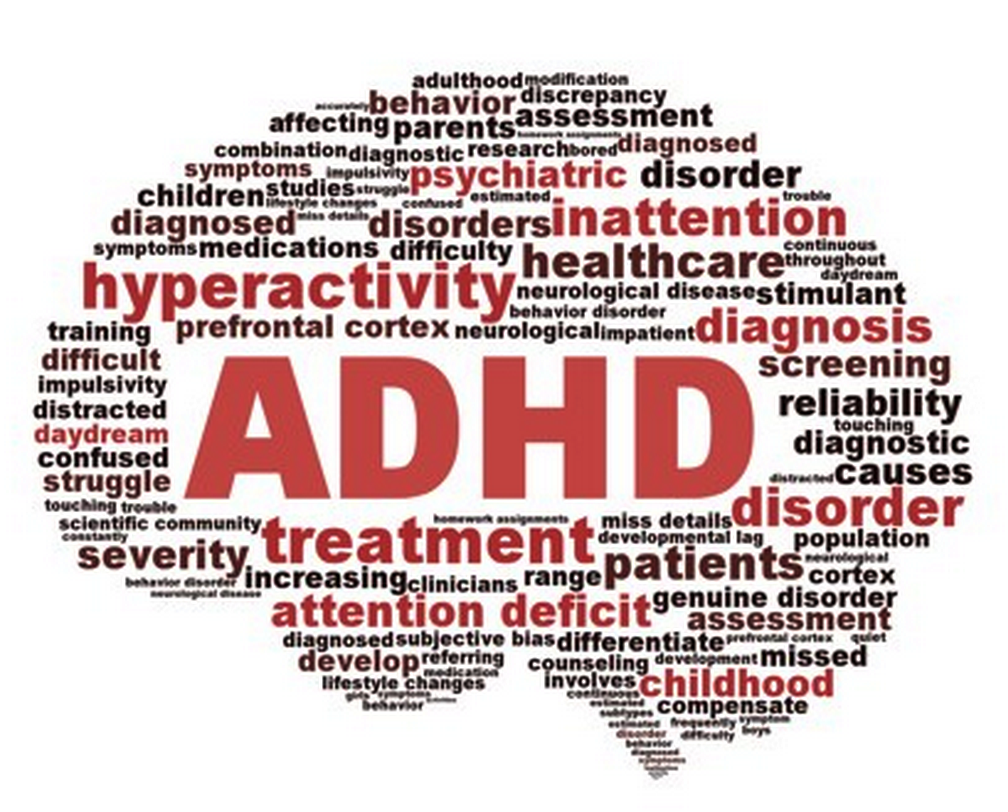Mental Health Q&A | ADHD.....parents seeking help for their children

 Mental Health Q&A | ADHD and what matters for parents seeking help for their children
Mental Health Q&A | ADHD and what matters for parents seeking help for their childrenHere, we share a perspective / studies on ADHD and what parents may see as issues for getting help for their children.
Lack of knowledge about attention-deficit/hyperactivity disorder (ADHD) symptoms and treatments is the most common reason why parents do not seek mental health care for children at risk of ADHD, researchers reported in a study published online in the Journal of Attention Disorders.
In this Q&A, researcher Amani Kappi, MSN, RN, discusses the study, which also concluded that raising parental awareness through psychoeducational intervention could help identify children at risk for ADHD earlier. She also shares her inspiration for the research and its potential impact on treatment, and discusses her future work with youth in Saudi Arabia.
Q: What led you and your colleagues to look into the mental health seeking behavior of parents of children at risk of ADHD?
A: As part of my master’s training, I worked at the Neurological Clinic in Dayton Children’s Hospital, Ohio, where I dealt with behavioral and neuro-developmental issues in children across a culturally diverse patient population. I noticed that ADHD was not often identified at an earlier stage in childhood. This led to children having more comorbid disorders such as anxiety, depression, and antisocial behaviors. That inspired me to pursue my PhD in this area by investigating the community’s awareness, specifically parental awareness, of ADHD symptoms and its treatment in minorities, and understanding why ADHD is under-diagnosed and under-treated in childhood.
Based on my interest, I worked with Dr. Michelle Martel, a full professor and the director of clinical training at the Psychology Department at the University of Kentucky, Lexington. She conducts grant-funded research on the etiology and assessment of disruptive behavior disorders and ADHD in children, adolescents, and young adults with over 69 published peer-reviewed articles. We reviewed the existing evidence on this topic to understand parental barriers to seeking mental health care for their children at risk of ADHD.
Q: Please briefly describe the study method and the most significant finding(s).
A: This study was a systematic review of the existing evidence to understand parental barriers to seeking mental health care for children at risk of ADHD using a socio-ecological model. The electronic search strategy identified studies indexed in PsycINFO, Cumulative Index of Nursing and Allied Health Literature (CINAHL), Education Resources Information Center (ERIC), Medical Literature Analysis and Retrieval System Online (MEDLINE), Scopus, and Web of Science using different keywords (eg, help-seeking, mental health care, service utilization, barriers, parent, at risk, and ADHD symptom).
Twenty-one articles conducted in different countries were selected and summarized for parental barriers at different socio-ecological levels. For example, at the individual level, lack of knowledge of ADHD symptoms and its treatment was the most reported parental barrier. Other parental barriers at the individual level were parents' perceived need for help, beliefs of the child’s symptoms severity, age, gender, parents' ethnicity, level of education, occupation, medical services experience, and stigma toward seeking mental health care.
Also, having a small social network and various social support among parents from diverse cultures were barriers that parents faced at the interpersonal level. Finally, cultural norms and poverty were identified as parental barriers at the community level.
Q: Were any outcomes different than you expected?
A: As we anticipated, parents experience different barriers at different levels of the socio-ecological model. Most of these barriers were interrelated and based on the parents' cultural background. However, the selected articles did not mention parental barriers at the organization/health system level, such as availability and accessibility of the mental health care services among parents who seek help for their children with behavioral issues or who are at risk of ADHD.
Q: Are there any practical applications of your findings for clinicians treating pediatric ADHD?
A: Clinicians could educate parents about the symptoms of ADHD and its treatment in routine visits, considering that parents have different cultural background knowledge and social support. Also, clinicians who treat children with ADHD could consider providing psychoeducational intervention for the parents that could reduce parental barriers such as stigma toward mental health care and improve parents' understanding of the severity of ADHD symptoms among children of different ages and gender.
Q: How do you hope this research affects the future of pediatric ADHD treatment?
A: I hope this research affects the future of pediatric ADHD treatment by addressing parents’ barriers that could lead to increase services access and earlier children's treatment and reduce the long-term negative outcomes associated with ADHD. The more we raise parents' awareness of ADHD symptoms and the available resources for treatment, the more children at risk of ADHD would access services and have earlier treatment.
Q: Are you conducting any more research in this area, and are there any other studies you feel are needed?
A: I am currently conducting a study about parental barriers to seeking mental health care for Saudi Arabian children who are at risk of ADHD. Researchers have reported that there is an underestimated number of children with ADHD in Saudi Arabia, my native country.
Also, less attention has been paid to understanding parent mental health seeking behavior regarding ADHD in children. Such work is particularly important because understanding barriers that can hinder mental health seeking services, particularly from the parents’ perspectives, is an important first step in designing interventions that can better aid early ADHD identification and treatment engagement for vulnerable children in Saudi Arabia. Other studies are needed to address facilitators to mental health that would help create an educational intervention that improves parents' access to services.


